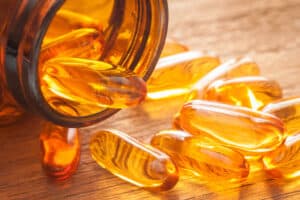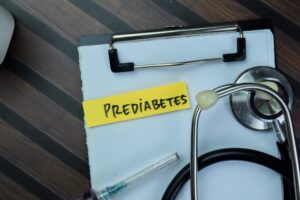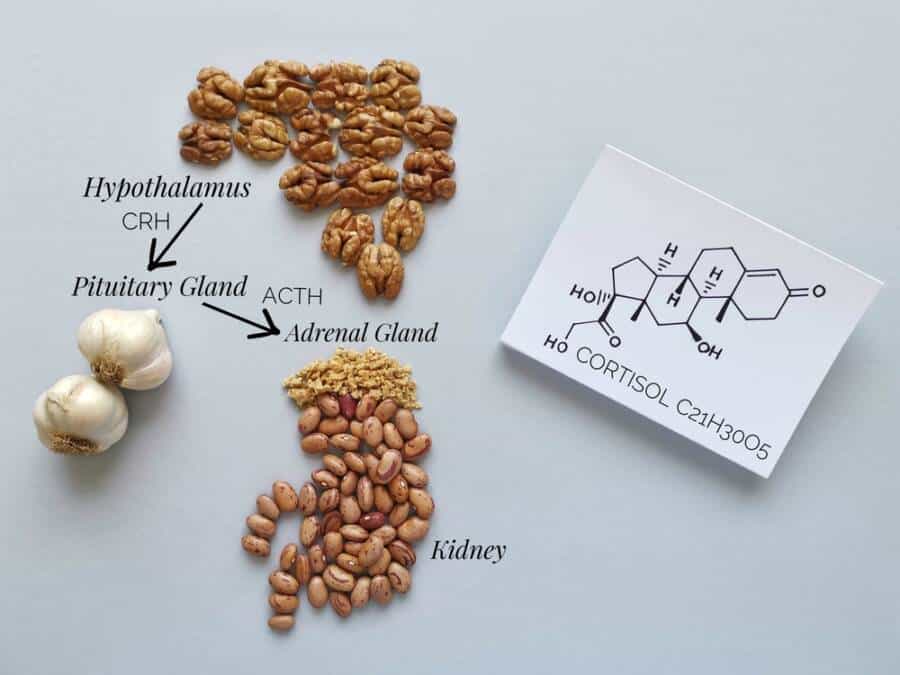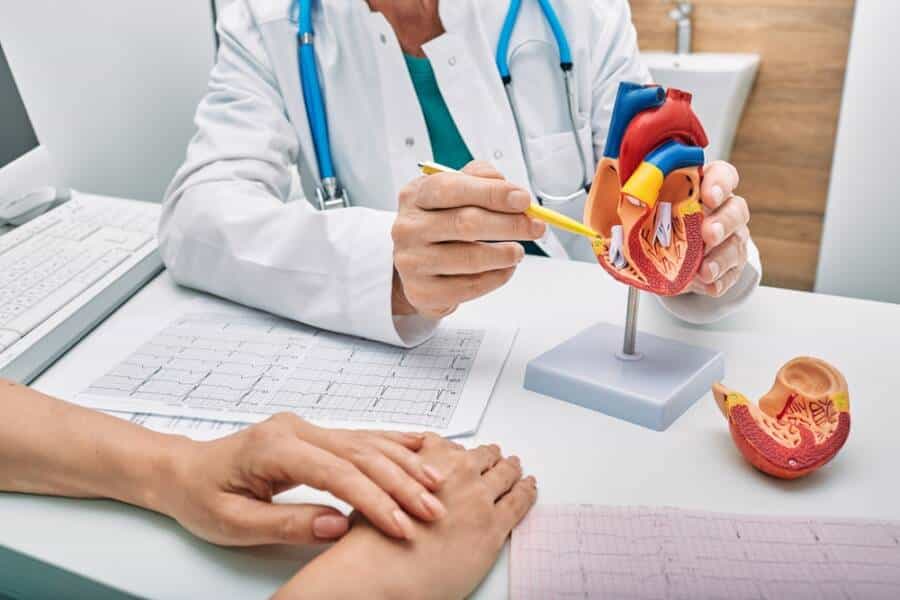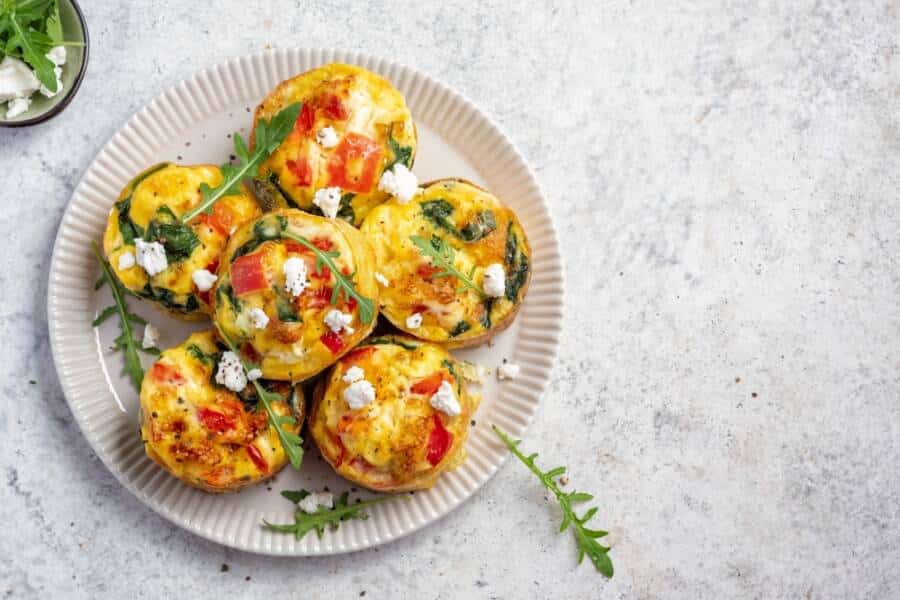It can be smooth or crunchy. It can be combined with your favorite jelly jam or added to your favorite muffin recipe. It can transform any smoothie or fruit salad into a real masterpiece.
Ladies and gents, I give you (probably) one of the best combinations between good taste, texture and nutritional benefits out there: peanut butter! Not only is this delicious treat extremely versatile, but it also gives you enough satiety and energy to start the day right. If you’re looking for recipes that call for peanut butter, here’s a book that may inspire you!
But why is peanut butter so satisfying after all? What makes us feel so good whenever we enjoy this treat?
Today, we’ll find out exactly what happens inside your body when you eat peanut butter. I’ll give you a little hint: there are a lot of changes going on!
1. You’ll reduce your risk of diabetes
Unfortunately, diabetes is one of the most prevalent health problems in our country right now. However, there’s plenty we can do to prevent type 2 diabetes and one of these solutions is already in our kitchen!
According to Miriam Jacobson, RD, multiple studies found that eating one ounce of nuts or one tablespoon of peanut butter (about half-serving) five days a week can reduce your long-term risk of diabetes by at least 20%.
2. You’ll get a boost of energy
Peanut butter is one of the best vegetarian sources of protein while also giving you a good amount of fiber. However, unlike processed snacks or foods, healthy peanut butter can also regulate your blood sugar levels.
Although protein snacks may seem like a better option, for instance, most of them are so loaded with sugar they’ll cause the most tiring sugar crash shortly after eating them.
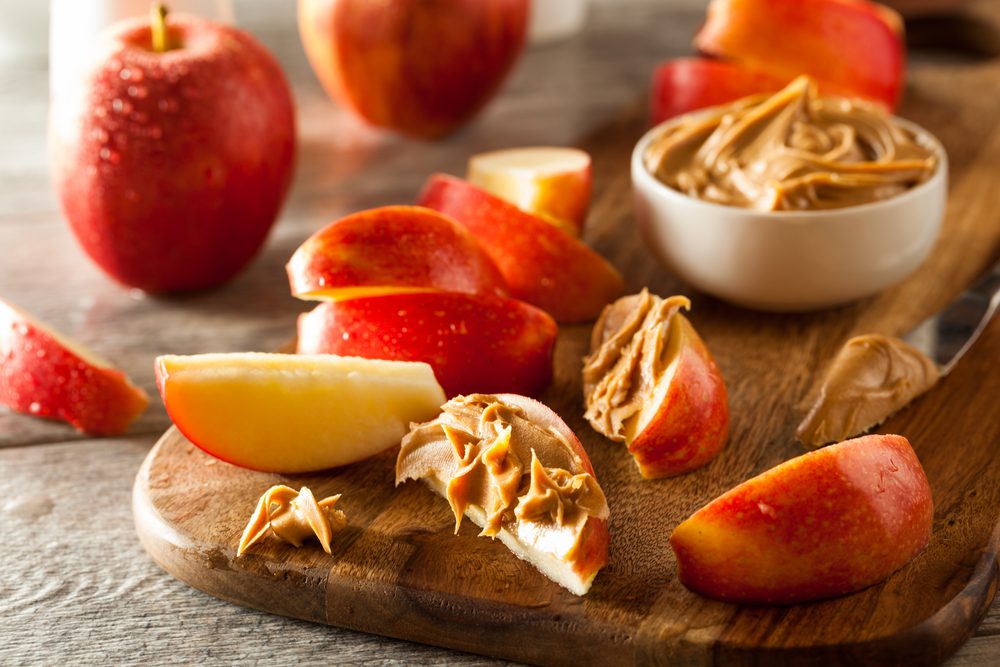
3. You can drop unwanted pounds
The fact that peanut butter contains so much fat makes many people think it’s bad for their diet. Here’s a rule of thumb to remember: not every type of fat is harmful and our body definitely needs this ingredient to stay in good shape.
What’s more, peanut butter can even help you to reach your weight loss goals! How? One of the main reasons is related to protein: only 2 tablespoons contain 7 grams of protein, which is essential for muscle growth.
Then comes the essential element of satiety: in simple terms, eating 100 calories of peanut butter is much more satiating than 100 calories of potato chips, for instance. The feeling of satiety is essential for any diet because it prevents unhealthy cravings, thus helping you maintain a healthy eating schedule.
But beware! Choosing the wrong type of peanut butter can lead you into a trap…
4. You might gain weight too
Peanut butter can be a very deceiving food especially if you’re not used to reading the labels – or if you combine it with unhealthy ingredients.
Firstly, now that you know that the fat in peanut butter is actually good, you should avoid low-fat products by all means. That’s because reduced-fat peanut butters are often overloaded with sugars to seem more satisfying, when in fact all they do is add extra pounds to your waistline.
Specialists also recommend avoiding peanut butters with hydrogenated oils (listed on the label), since this substance can increase your risk of clogged arteries over time.
Lastly, make sure that the other foods or ingredients you combine peanut butter with are equally healthy. White bread, for example, can be a disastrous choice if you don’t know how to pick the right option.
5. You can prevent allergies
Are you pregnant? If so, then peanut butter should move to the top of your eating choices!
According to Frank R. Greer, MD, professor of pediatrics at the University of Wisconsin, eating peanut butter constantly during pregnancy can reduce the risk of your child developing allergies to this food after birth. That’s because a good amount of the nutrients included in peanut butter can reach the fetus, thus getting his little body used to the flavor and ingredients.
Of course, peanut butter is also an excellent pregnancy food due to its high content of protein and fat – two macronutrients essential for you and your baby’s development.
6. You might accidentally eat pesticides
The most recent statistics issued by the United States Department of Agriculture (USDA) depressingly state that 94% of the planted acres of peanuts are entirely covered in herbicides. Although peanuts are protected by shells, many of these powerful, harmful substances can still leach in and remain stuck inside the nut.
If you think this isn’t bad, know that pesticide exposure has been often linked to fertility issues and birth defects. The best way to stay away from pesticides is to simply pick organic options from the isle.
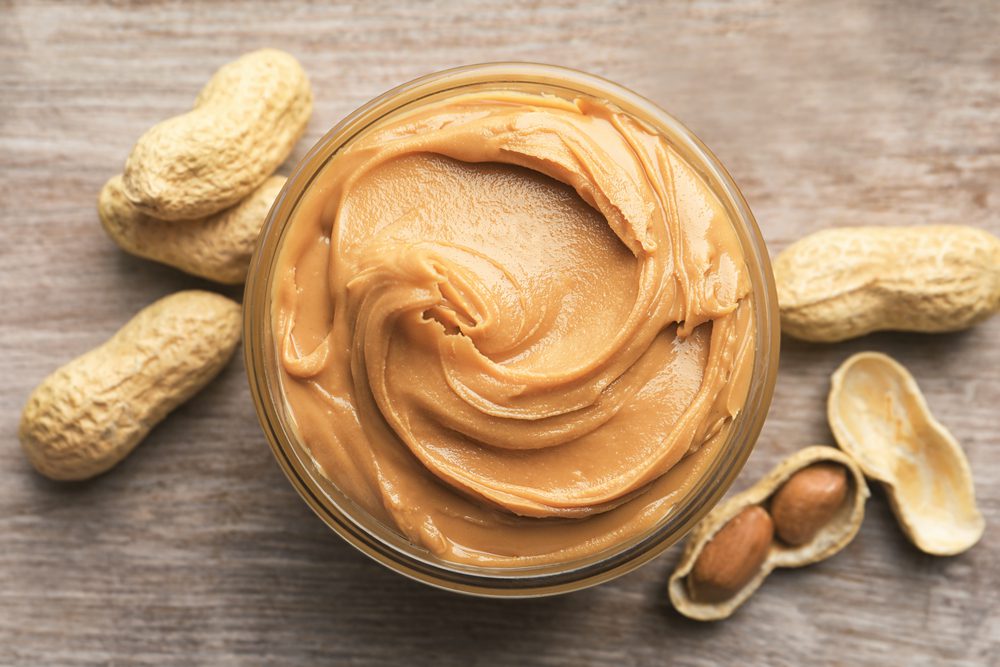
7. You’ll combat toxins
Almost all types of nuts are rich in polyunsaturated and mono fats which promote the absorption of essential vitamins and minerals.
Vitamin E, for example, can protect your body against toxins like air pollution while regulating menstruation and even reducing unpleasant symptoms caused by the premenstrual syndrome. Other studies have confirmed that this wonder vitamin can combat many vision disorders such as cataracts and might reduce your long-term risk of Alzheimer’s disease and diabetes.
8. You can eliminate fat genes
You know how some people can eat junk food all day while staying skinny and others gain 30 pounds from one chocolate bar? One of the reasons behind this difference is in our genes.
That’s right: our genes can determine in a small measure how likely we are to become chubbier – or thinner – over the course of our lives.
Now here’s a little secret: peanuts contain genistein. This compound directly impacts the genes responsible for obesity by turning them down, therefore reducing your fat-storing ability. This miraculous compound can also be found in beans and lentils, so make sure to eat them away too!
9. You’ll reduce your risk of heart disease
Sadly, heart disease is the number one cause of death in our country and the future won’t look any brighter unless we start adopting healthier eating habits.
Luckily, though, peanuts contain plenty of monosaturated fats which can do wonders for your heart. This 2015 study published in the journal JAMA International Medicine found that eating just 30 grams of peanuts (or peanut butter) weekly can decrease your risk of cardiovascular disease in a tasty, simple way!
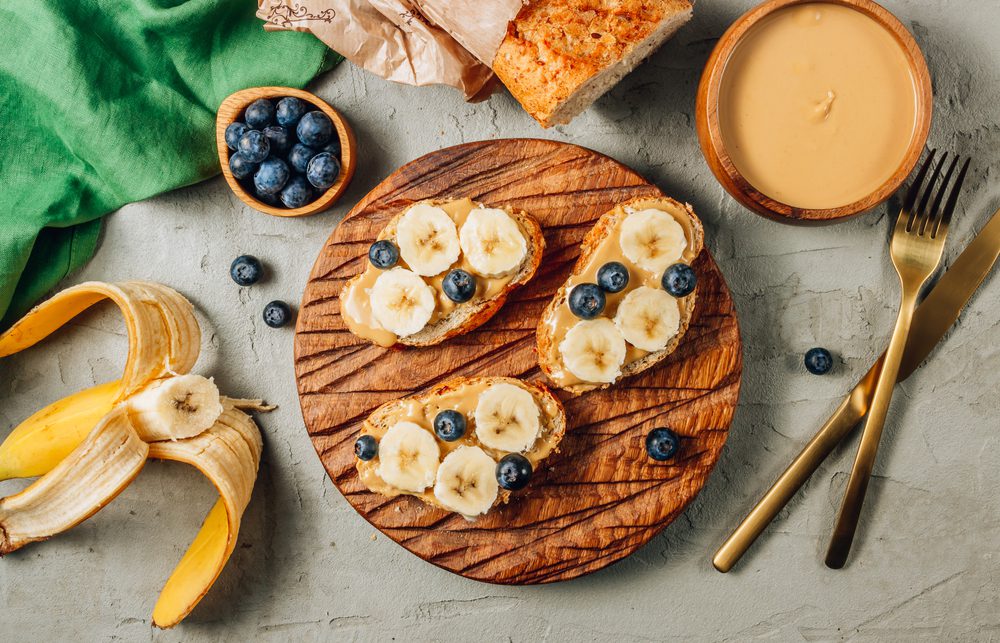
10. You’ll get plenty of micronutrients
The category of micronutrients contains vitamins and minerals that our body needs to stay healthy in the long run – and peanut butter is one of the best ways to enhance your diet.
This tasty treat offers plenty of vitamin E, B6, B3, magnesium, copper, folate and manganese.
Magnesium has been spiking in popularity over the past few years when specialists discovered that it can reduce headaches and muscle soreness. Meanwhile, vitamin E can prevent cancers, eye disorders and even heart disease.
As for folate, it is crucial for the fetus’ proper development, so here’s another reason for pregnant ladies to give in to this salty craving!
Overall, peanut butter can offer such a wide range of benefits if you pick a healthy version and combine it with other equally healthy ingredients.
You may also want to read 10 Canned Foods You Should Avoid at All Costs.




